EU set to suspend 2007 visa deal with Russia, but not ban Russian tourists
Putting speculation to rest, European Union foreign ministers on Wednesday decided to fully suspend a 2007 visa facilitation agreement with Russia, stopping short of slapping blanket ban on Russian tourists.
The suspension of the agreement will hamper the visa application process, making it more expensive, arduous, and lengthy for Russian nationals who plan to visit EU countries.
The 2007 facilitation agreement was designed to give preferential treatment to Russian visa requests.
EU foreign policy chief Josep Borrell said the ministers agreed that relations with Moscow "cannot be business as usual".
"We agreed on full suspension of the European Union-Russia visa facilitation agreement," Borell told a news conference after a meeting of foreign ministers in Prague.
"It’s going to be more difficult and longer, and consequently the number of new visas will be substantially reduced," he hastened to add.
He described it as a “common approach” and said a common approach “will prevent potential visa-shopping by Russians, going here and there, trying to [find] the best conditions.”
It came after diplomats said the EU ministers could not immediately agree on a complete ban on travel visas for Russians as member states were divided on the issue.
Borrell had strongly opposed the blanket ban on Russian travelers, saying the bloc needed to be "more selective" in its approach and allow those who wish to leave Russia.
Germany, France, Portugal, and Spain adopted a similar stance, fearing its unwanted repercussions.
“While understanding the concerns of some member states in this context we should not underestimate the transformative power of experiencing life in democratic systems at first hand, especially for future generations," Germany and France wrote in a document.
"Our visa policies should reflect that and continue to allow for people-to-people contacts in the EU with Russian nationals not linked to the Russian government."
Borrell said the countries bordering Russia "can take measures at a national level to restrict entry into the European Union."
Before the meeting, Poland and the three Baltic states of Estonia, Latvia, and Lithuania had said they were considering banning Russian travelers if the EU failed to do so.
In a joint statement, the four countries said termed suspending the visa facilitation agreement as "a necessary first step."
"But we need [to] drastically limit the number of visas issued, above all tourist visas, to decrease the flow of Russian citizens into the European Union and the Schengen area," they added. They said the move should contain exceptions "for dissidents as well as other humanitarian cases."
The top EU diplomat further noted a substantial increase in border crossings from Russia into neighboring states since mid-July.
"This has become a security risk for these neighboring states," he said. "In addition to that, we have seen many Russians traveling for leisure and shopping as if no war was raging in Ukraine."
"While people-to-people contacts are important, now we see primarily rich Russians coming to Europe for shopping," said Dutch Foreign Affairs Minister Wopke Hoekstra.
"This is not a good idea. It does make sense to limit this kind of travel."
EU foreign ministers also asked the European Commission to look into the hundreds of thousands of visas held by Russians that are still in circulation.
Russia launched a military operation in Ukraine in late February, following Kiev’s failure to implement the terms of the Minsk agreements and Moscow’s recognition of the breakaway regions of Donetsk and Luhansk.
At the time, Russian President Vladimir Putin said one of the goals of what he called a “special military operation” was to “de-Nazify” Ukraine.
The operation, which is now in its seventh month, has damaged relations between Moscow and the European countries, who have imposed waves of sanctions on Moscow.
Israeli airstrike kills at least 7 people in Rafah
VIDEO | Iranians hold nationwide demos in support of IRGC
Syria condemns US veto of Palestine UN membership resolution
Iraqi resistance forces hit Israeli Ovda air base
Hackers break into Israeli military’s computers, access trove of documents
Tulkarm Brigade commander killed by Israeli forces in raid on refugee camp
Zionist media desperately trying to turn Israeli defeat into victory: Iran
VIDEO | Press TV's news headlines


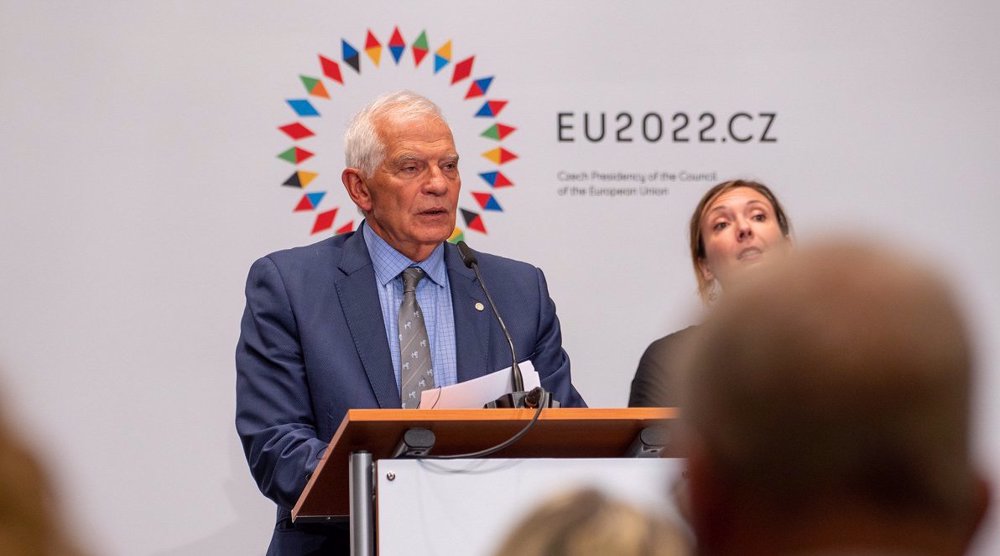
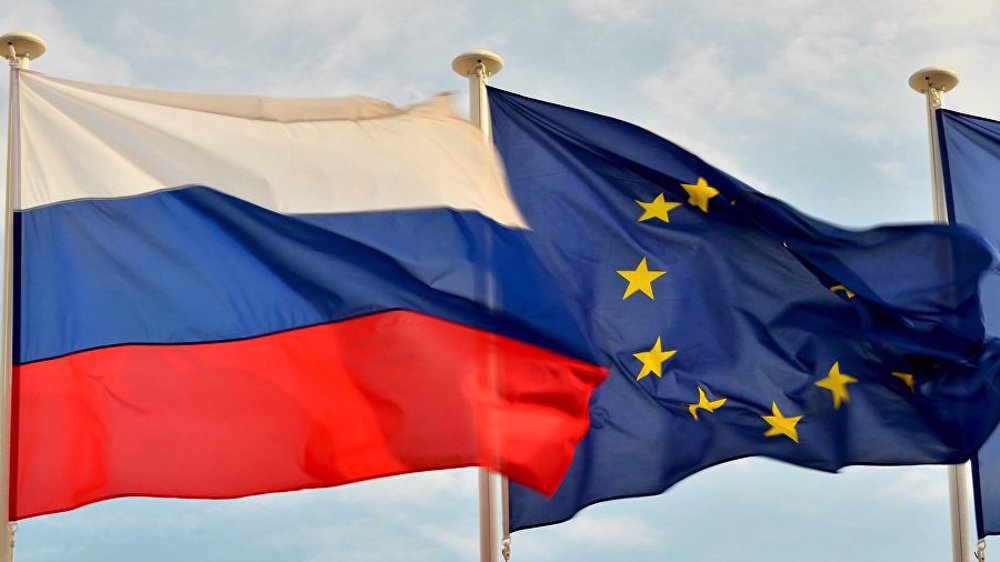
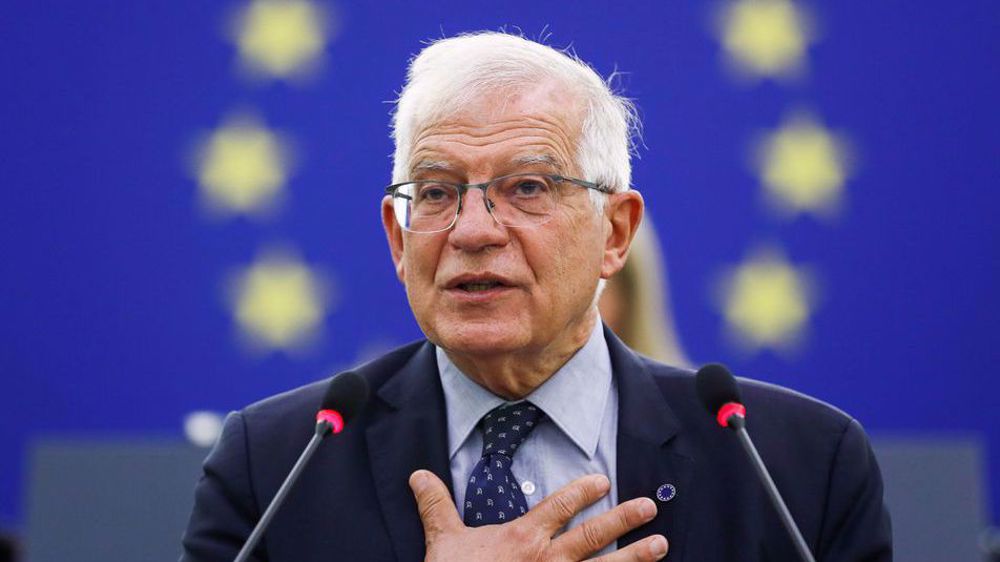
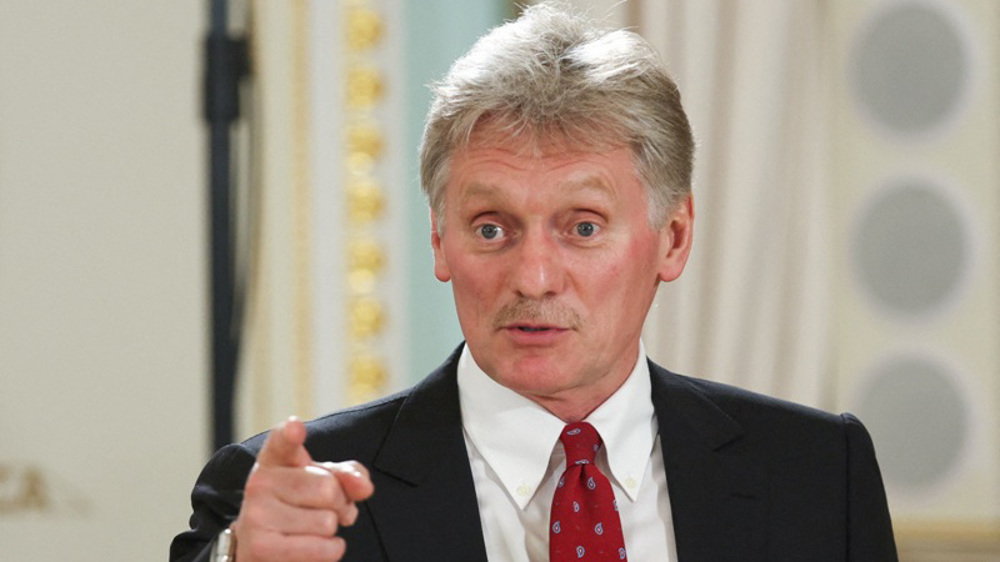
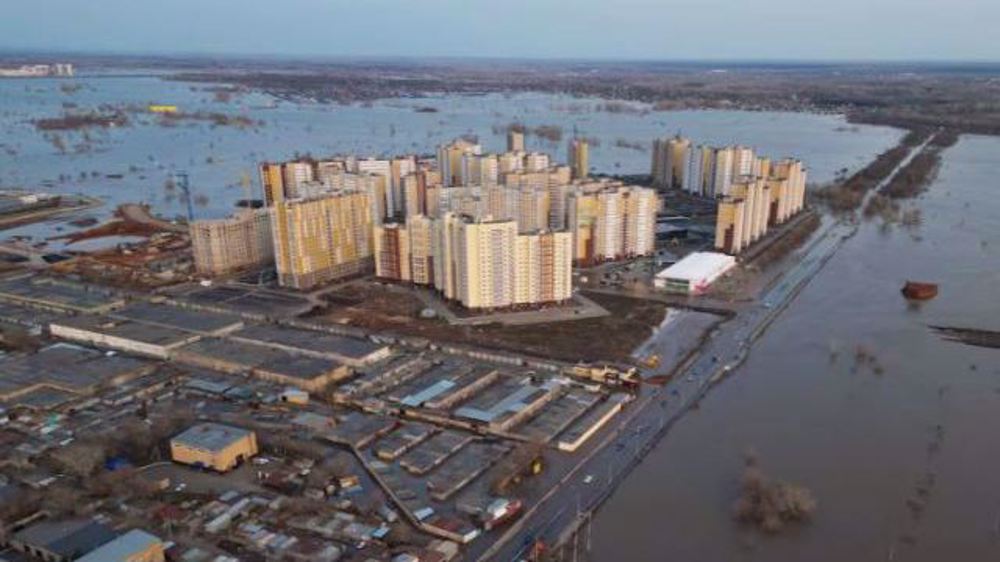
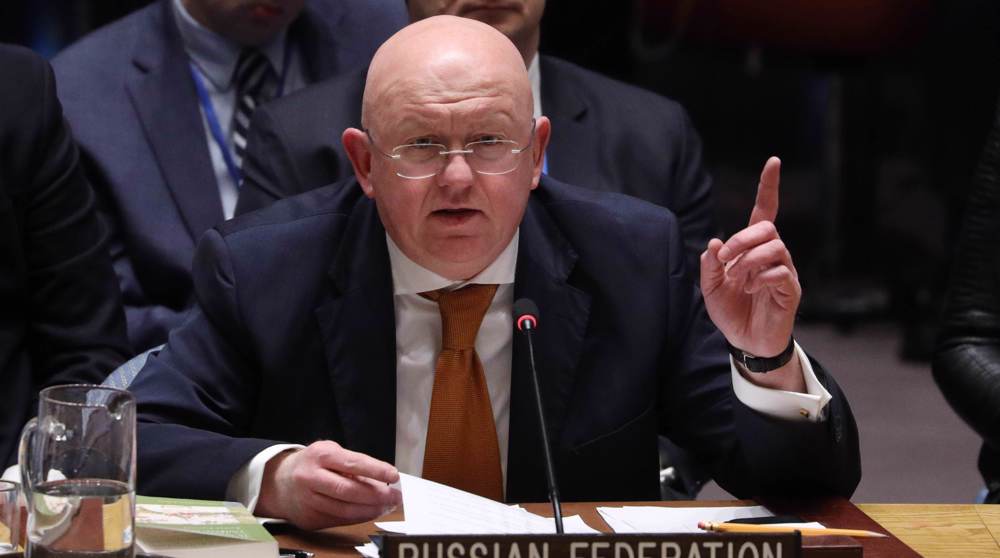



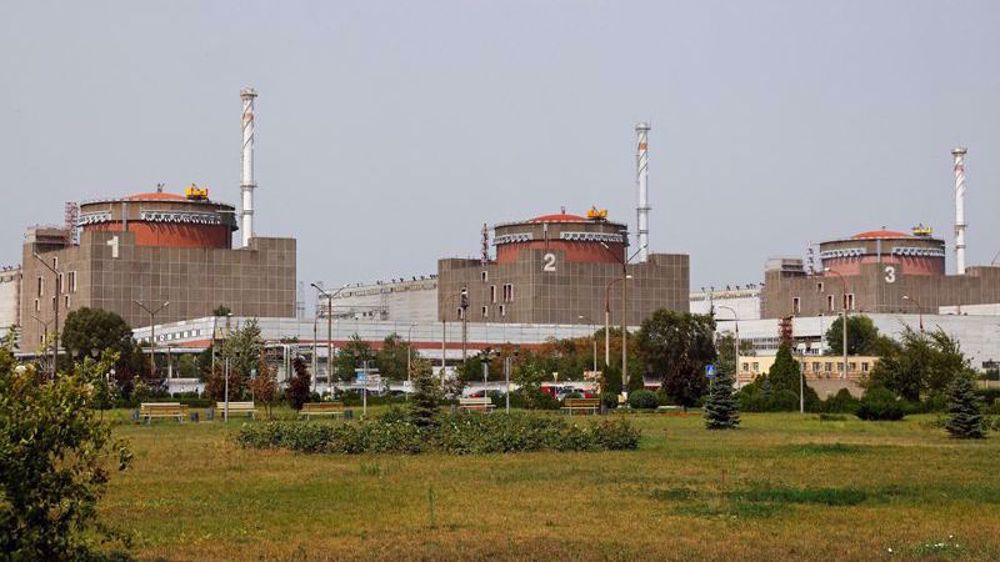
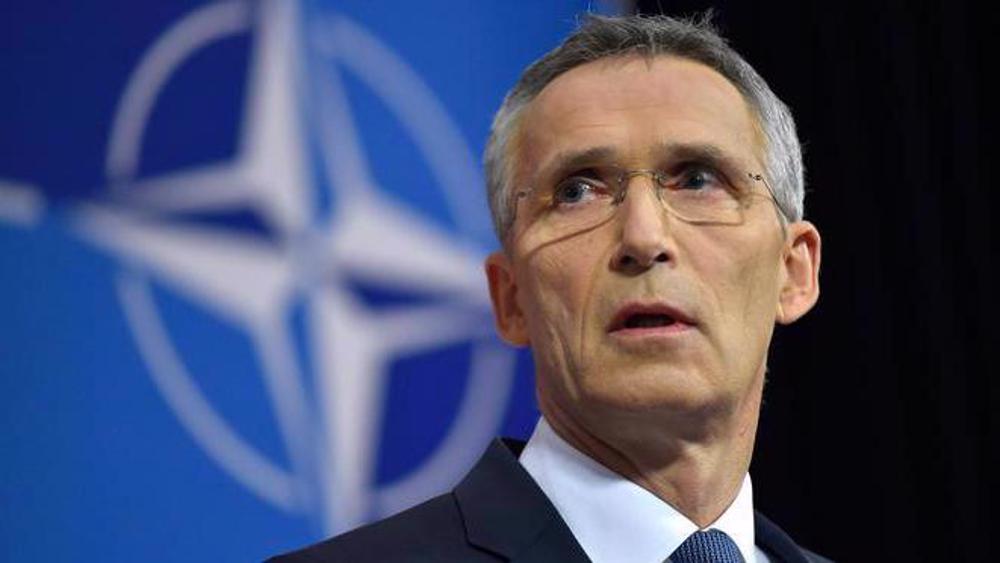
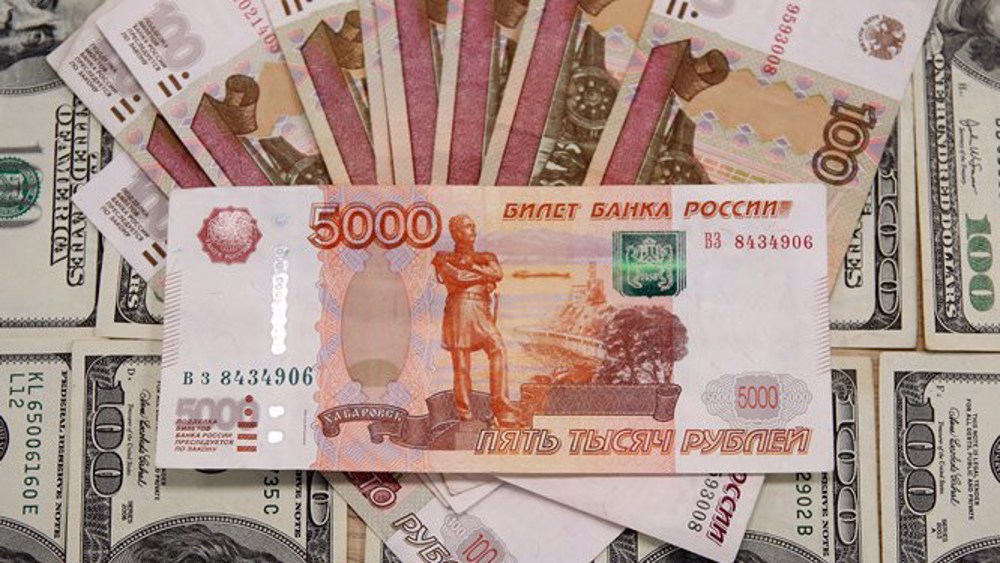
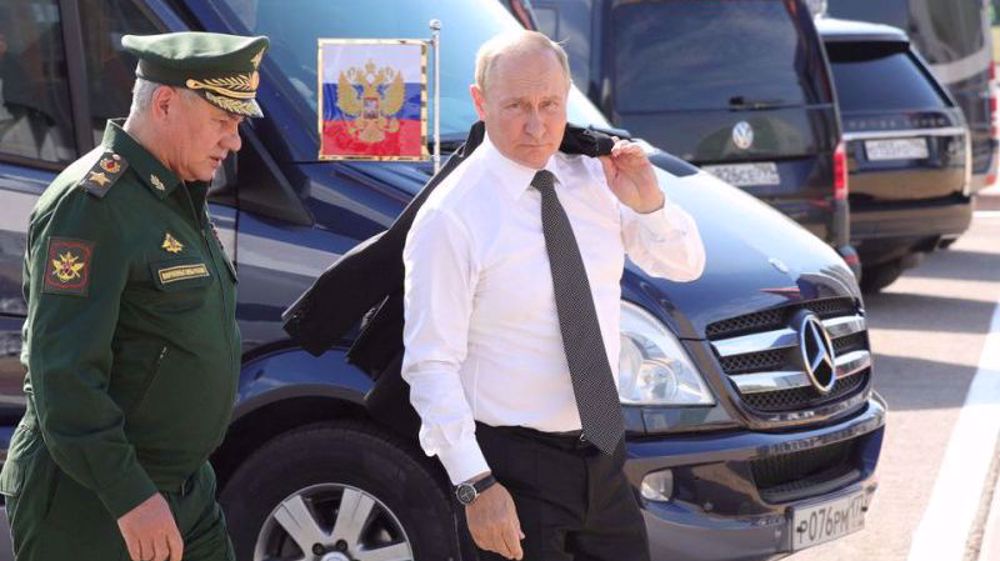
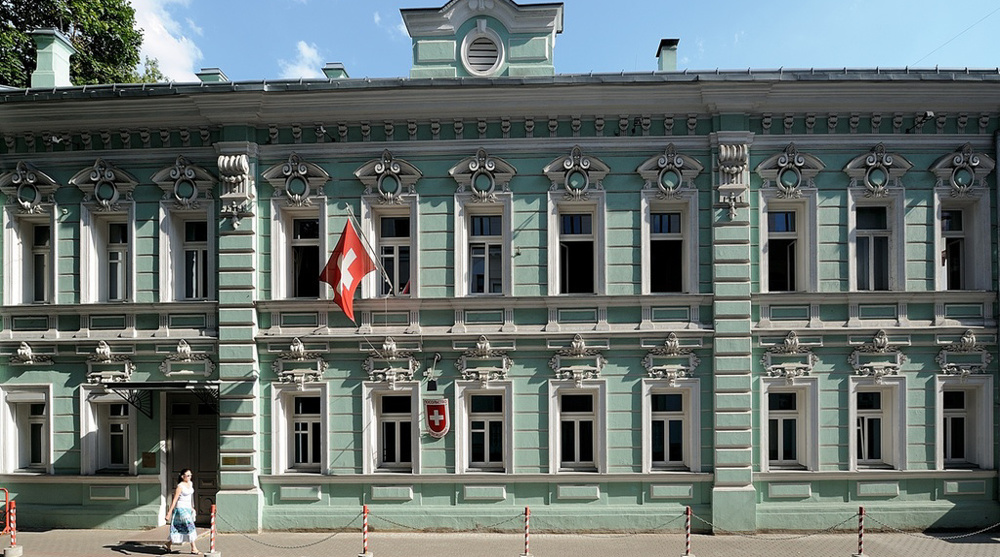

 This makes it easy to access the Press TV website
This makes it easy to access the Press TV website